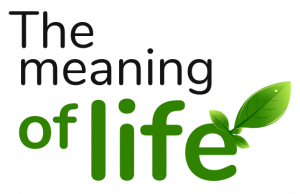
Once upon a time, you would use an AIM profile shout-out to cement your adolescent love. The comfort we take in being able to firmly define our relationships, something that may sometimes feel so ambiguous and be communicated poorly, is evident in the age of selfies and “Facebook official” status updates. It is getting more and more popular these days to publish about your relationship (and life) on social media. You have no proof that it happened if it’s not on the internet.
If you consider social media to be the contemporary version of a town square, where announcements are posted, information is shared, and communities come together over common experiences, then it makes sense that you would want to share the moments in your life that you feel are important to record. Posting the highlight reel is the goal. There is nothing wrong with the idea of sharing the aspects of our lives that people who aren’t close to us would otherwise be unable to see.
However, social media adds another level of complexity because it is a reflection of our identity, connections, and self-worth rather than merely a complement to them. We are able to piece together a picture of who we are, measure the love and attention we receive from others, and eventually start to compare and assess our social status. As identity, connection, and inherent value are all struggles that are firmly ingrained in the human condition, it should come as no surprise that we become addicted to the high that comes from all the clicks and pixels on social media.
Look no further than the trends in their social media feeds to see how someone wants the world to perceive them. When it comes to their closest connections, this is never more true (or fascinating, to be honest). Being open and proud of the person you’re dating is natural and even beneficial, but there’s also a direct correlation between how often you write about your relationship and how happy you actually are in it. Here a few reasons for this.
You Can Make Yourself Feel Better About A Part Of Your Life Simply By Thinking That Other People See It Differently
Put another way, we look for a “high” somewhere else if it’s not coming from the areas of our lives that we believe should be responsible for our emotional fulfillment. This usually stems from our perception of how we believe others view the circumstances. (TL;DR: By subtly changing our perspective, we can make ourselves believe that other people find our relationships happy, which makes us feel better about them.)
When You’re Happy With Your Life (Or A Relationship) You’re Naturally More Present For It
You don’t think as much about taking pictures or viewing your social media accounts. Not because you never do such things, but rather because your life is so fulfilling, why would you want to let them take all your attention?
Any Couple That Keeps Their Intimate Arguments Or Struggles Offline Is Always Better Off
Posting publicly about things you’re not delighted about is the opposite of oversharing. However, regardless of the situation, a problem has never been satisfactorily handled when someone publicly shared their dirty laundry with all of their Facebook friends and family.
Their Relationship Validates Them, So They Don’t Need To Seek That Feeling Externally
Put differently, there doesn’t seem to be much interest in sharing relationship updates on a regular basis. They find happiness in being together rather than in sharing pictures of each other.
They Don’t Have Anything To Prove
They are not taking advantage of one other to show the outside world how happy, lovely, worthy, and attractive they are. Rather than because their ingrained problems demand it, they are together because they want to be.
Research Shows That People Who Use Social Media Less Are Generally Happier Overall
People who go a week without Facebook report feeling substantially better. Depression is associated with excessive social media use, according to social comparison theory. Heavy social media use has also been linked to poor mental health. On and on it goes. The idea is that the beast’s nature is not conducive to our mental or emotional well-being. It’s unsurprising that it would spill into our interpersonal connections.

















